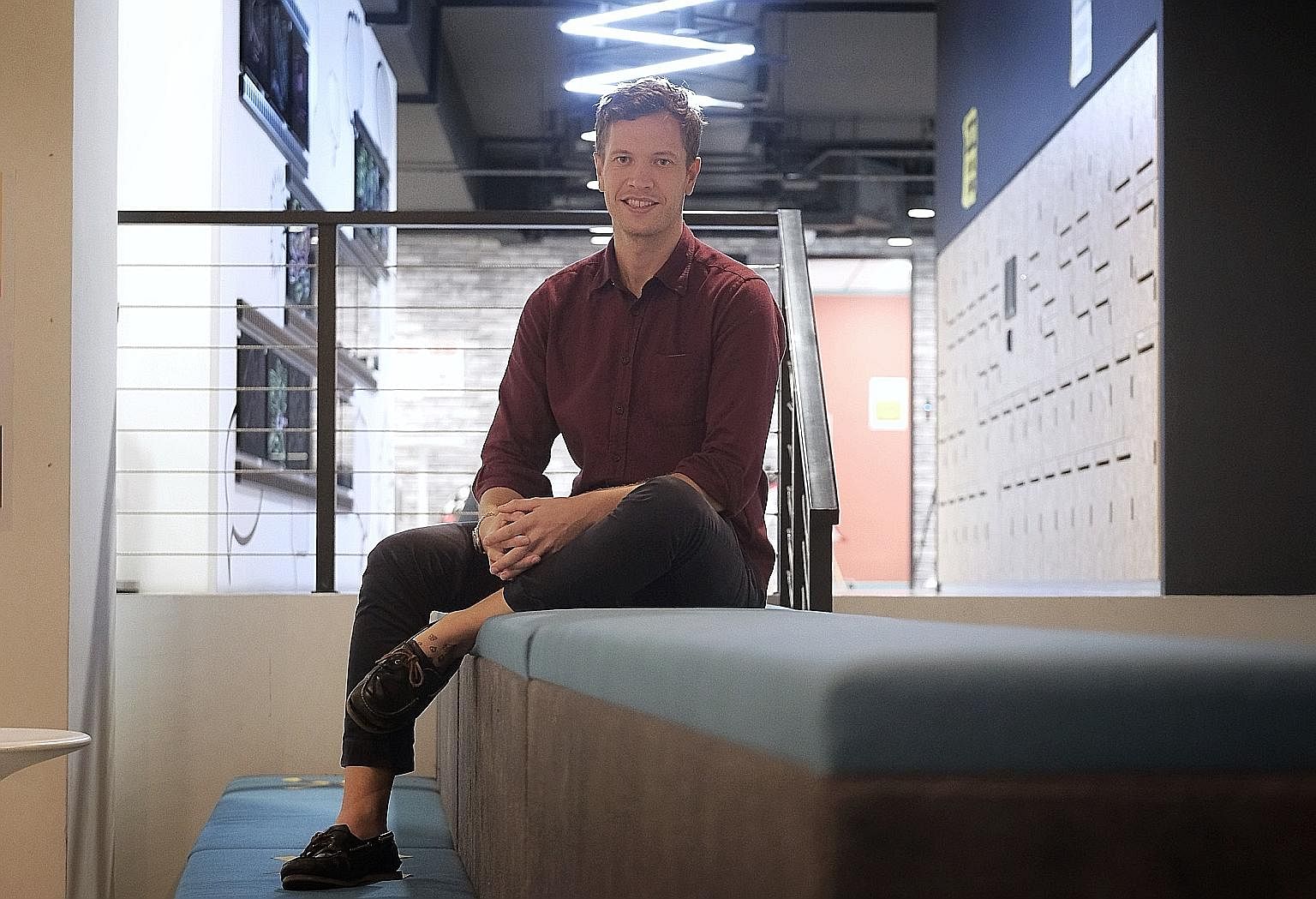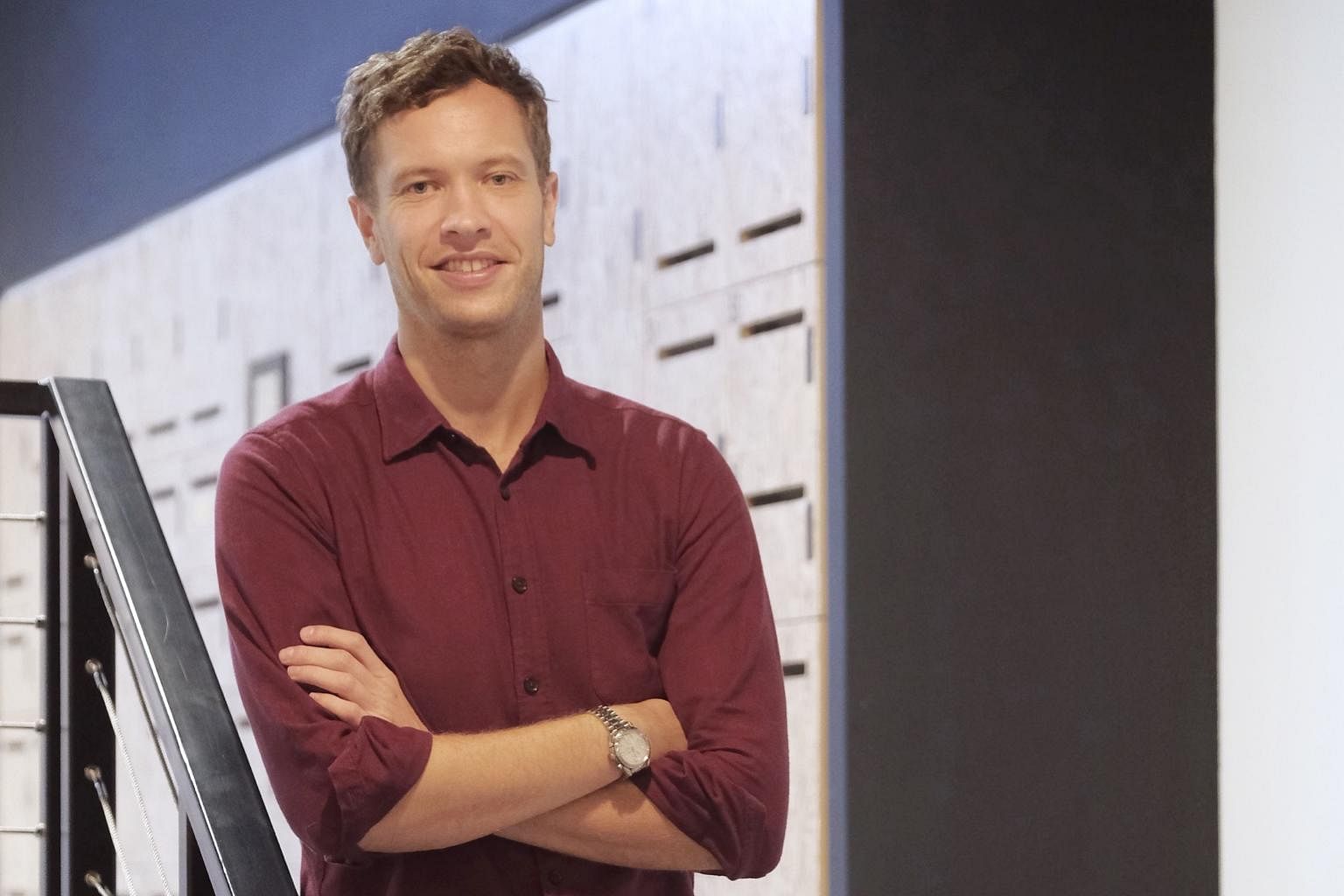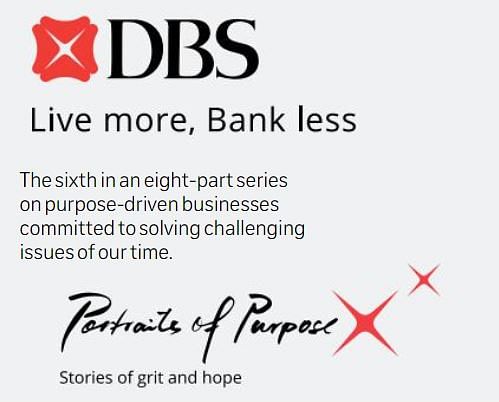Portraits of Purpose
S'pore-based social enterprise delivers affordable healthcare to the poor
Mr Edward Booty says it is a social and moral injustice that 52 per cent of people on the planet do not have access to it
Cecil Rhodes, the late British imperialist who founded the colonies of Southern and Northern Rhodesia - now known as Zambia and Zimbabwe - once said to a compatriot: "Remember that you are an Englishman, and have consequently won first prize in the lottery of life."
Mr Edward Booty, however, begs to differ. In fact, he finds repugnant the idea that he has some privilege just because he was born a tall, white male in Britain.
"I feel unnecessarily entitled due to where I was born, that it automatically entitles me to healthcare access," says the 32-year-old.
"The fact that 3.7 billion weren't born like me is fundamentally a social injustice that I do not believe in," he says, referring to the number of people on the planet who do not have access to healthcare.
It perhaps explains why he is in this neck of the woods, channelling his energies into helping poor and isolated communities in countries such as India, the Philippines and Cambodia.
Mr Booty is the founder of reach52, a Singapore-based social enterprise that uses digital technology, community empowerment and innovative public-private partnerships to deliver affordable healthcare to areas where access is low or non-existent.
It leverages digital platforms and appoints a couple of women in these communities to "collect data on healthcare needs, organise health events, order medicine as well as offer insurance plans".
A serious and driven man, Mr Booty is the eldest of five children of civil-servant parents. He studied human resource management and employment relations at the London School of Economics and embarked on a life-changing trip to India after graduating in 2010.
Exposed to poverty, his perspectives on life changed, especially after he nabbed an internship in the country and spent nearly eight months working for a pharmaceutical company which was trying to unlock large pockets of rural customer bases by offering discounted medicine.
He fell in love with the idea of doing social good through innovative business models.
Upon returning to Britain, he worked in a consultancy and, later, the National Health Service, focusing on digital and operational improvement.
But he soon grew tired of the bureaucracy and politics.
"A lot of innovation is blocked because of politics," says Mr Booty, who was also turned off by how his countrymen take for granted the free universal health coverage they get.
He decided to throw himself a gauntlet: "Can I go to areas with no healthcare and work with governments to build digital and primary healthcare support?"
And that is how he ended up in Singapore in 2015. reach52 - the number refers to the percentage of people on the planet with no healthcare access - was born the following year.
The initial going was rough. He went it alone with his savings.
Today, reach52 works not just with pharmaceutical companies, but also government agencies, non-governmental organisations (NGOs) as well as insurance companies to provide underserved communities access to affordable products and services.
Along the way, it has found supporters. For instance, it received a DBS Foundation grant last year.
"The DBS Foundation wanted to challenge us to grow faster so we took all of the funding they gave us and we launched in India recently," Mr Booty says.

"We've opened an office in Bangalore and wanted to work with three on-the-ground NGOs to launch this service to collect data, connect patients to government and NGO healthcare as well as offer our discounted or affordable insurance and medicine products."
From a small outfit, reach52 now hires about 45 people across five offices in the region.
Asked what he is proudest of, he says: "I guess it's starting something from nothing. Being a solo founder is pretty tough, but to look back and see our 50 or so strong team in the office and 400 people we have hired in the community is great.
"It feels only 1 per cent complete, but still, it is nice to reflect that this all started with me sitting in my bedroom with PowerPoint, trawling LinkedIn to find potential partners, and an idea."
If you had not gone on that trip to India all those years ago, do you reckon you will be doing what you are doing?
I think yes. Ultimately, even from when I started reach52, the model and my mindset have changed and evolved quite significantly. There can be many paths to get to the same outcome or end point.
Other factors - events, experiences or even just reading certain books - have shaped my thinking over the past decade. I think quite differently from when I left India.
Is it true that one of your reasons for quitting a well-paid job to start reach52 was you did not care about money?
I have quite mixed views about money. Ultimately, it's an ethereal social construct that has no absolute value, just the value society ascribes it. I remember in my early jobs just longing for that decent pay hike, but as soon as I got it, I just wanted more and felt entitled to a higher salary.
I then quite suddenly got a pretty huge promotion and more than doubled my salary unexpectedly, but even then, still felt I should get more.
It felt like a neverending thirst that couldn't be satisfied and thus I just wanted to be comfortable and do things I enjoyed and cared about.
You could have started a social enterprise or do good in London. Why healthcare and why in Asia?
First, I don't like to think about impact in terms of looking after one's own country or race. Transfixed nationalism sucks as we are seeing in various forms now. I haven't felt especially "British" or like I should just do something good for British people for quite some time.
Ultimately, we are all human and in the grand scheme of things, Britain is one of the largest economies globally, with government-funded healthcare for all and a pretty comprehensive social security net.
A lot of British people don't value or realise that. So I didn't want to spend my time making a good system even better - it's not as challenging, rewarding or necessary - and I prefer to do something for someone who really needs it.
Healthcare is an essential human right, but it doesn't reach 52 per cent of our planet and that's just a moral and social injustice.
Asia felt like a good place to me, given the digital boom, low-middle income focus, the diversity of the countries we could trial our model in and high out-of-pocket health costs.
Did you come close to giving up? If so, what or who made you stay the course?
Not even close. Frankly, I enjoy the tough times the most. It helps you find out who you are deeply.
Everything from Covid-19 pressures to running out of money and making sure the team got paid through maxing out five credit cards, to losing our biggest contract at the final stage and sleepless nights, as well as insanely long hours and hacking attempts on our apps. It's all tough stuff, but it's what helps me focus and push harder.

The poet W.B. Yeats once wrote: "In dreams begin responsibilities". Is reach52 a big responsibility?
The main responsibility I feel is to many of our team members and partners - they backed me. Many took big pay cuts to do so or took a gamble in their organisations to try something new. Making sure I do right by the people who supported me, including our business partners, has always been a big priority.
I've sort of had this logic that if I work for my team and then they work for me and our goals, we achieve our social-impact mission and deliver health for all. Ultimately, this is a tough space and we all have to push forward together.
What does purpose mean to you?
"Why does what I do matter?" is a question I try to ask myself most weeks and I base quite a lot of my life decisions on the concept of "matter".
On one hand, it's your purpose. On the other, it's the atoms and quarks that you're made up from a molecular level. And also the importance of something and the materiality of an issue. I like to think about all three together.
At a physical level, we have to appreciate the temporary consciousness our physical form has and be at peace with our biological clock that's ticking and just be grateful for everything around us.
I try not to ascribe too much value to things that don't have real importance in life and I'd say my life motto is "rationalise and move on", which has helped me get through some relatively tough times and also keep motivated when there's a setback in work or personal life.
I feel that if you can spend your conscious time doing something that is for the betterment of those around you, focusing on material issues that fundamentally affect the physical and social being of our species, it's a good and purposeful thing.
Join ST's Telegram channel and get the latest breaking news delivered to you.
A version of this article appeared in the print edition of The Sunday Times on October 18, 2020, with the headline S'pore-based social enterprise delivers affordable healthcare to the poor. Subscribe


